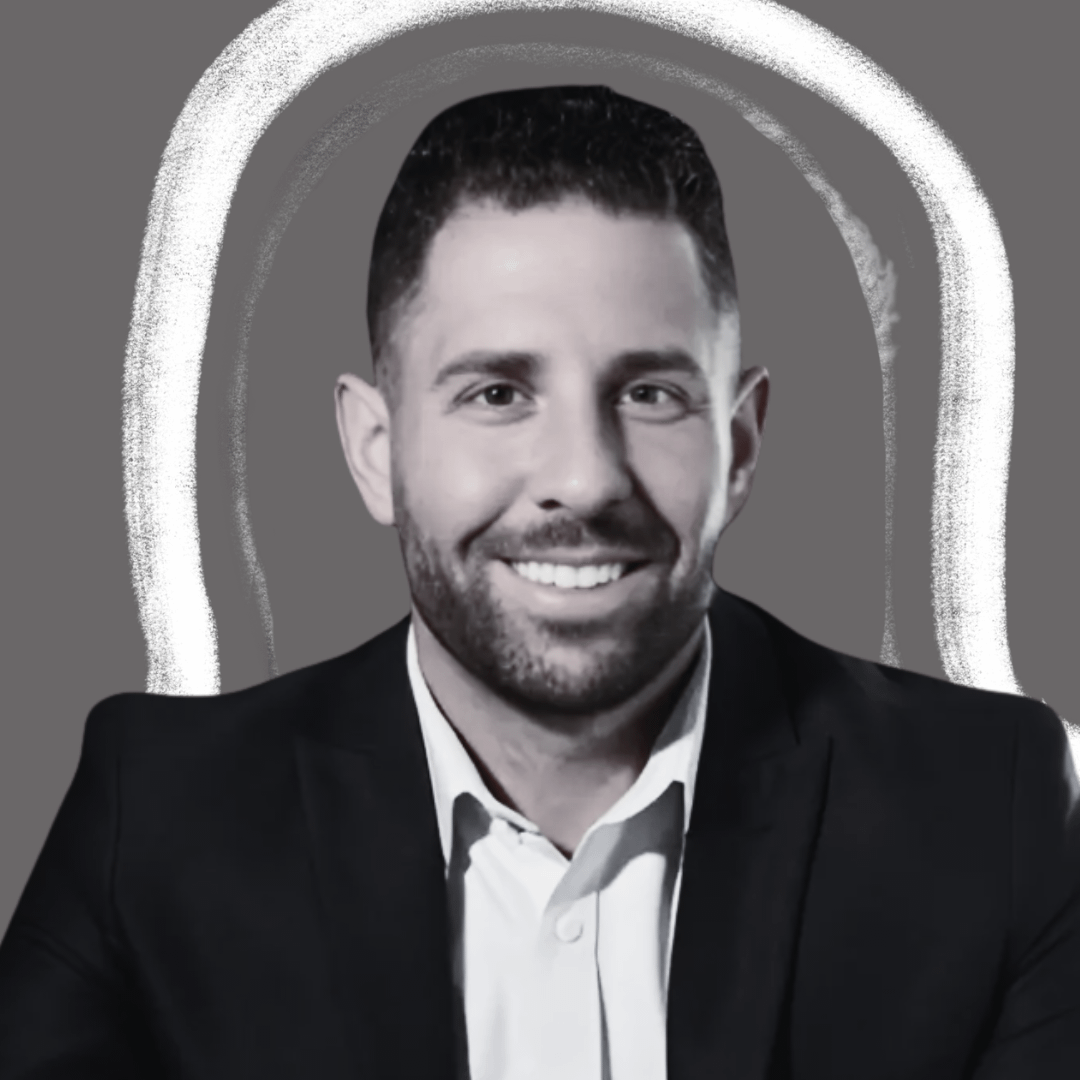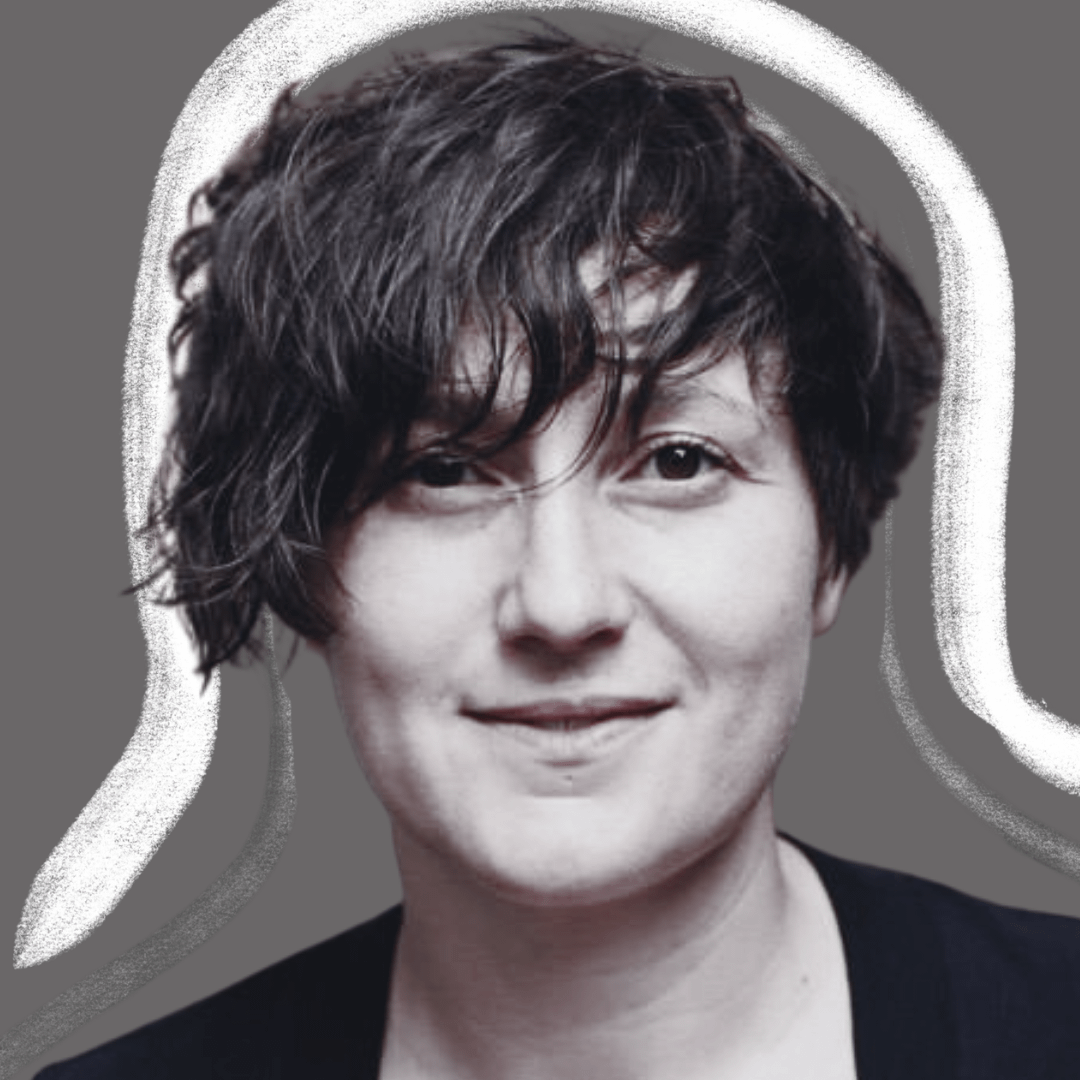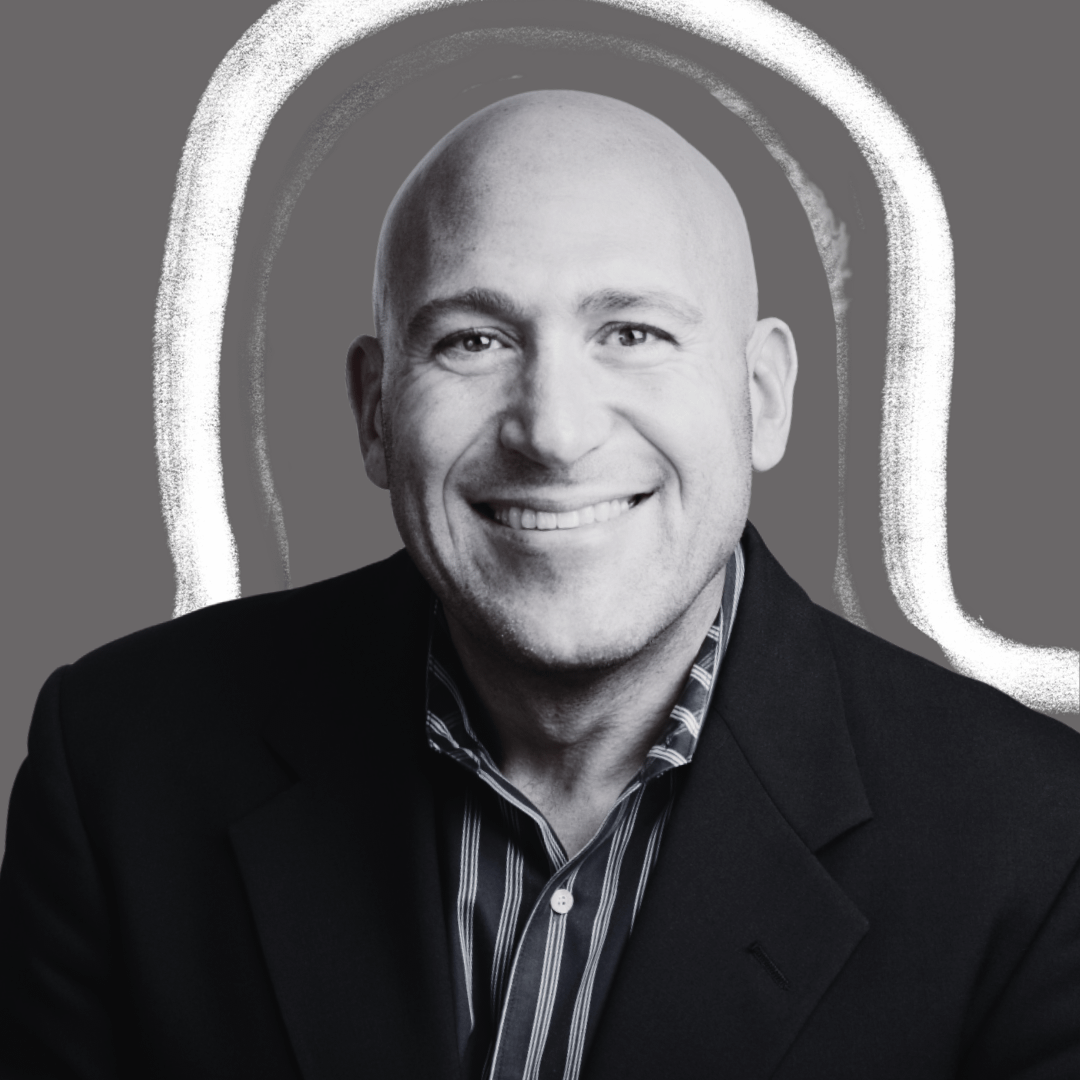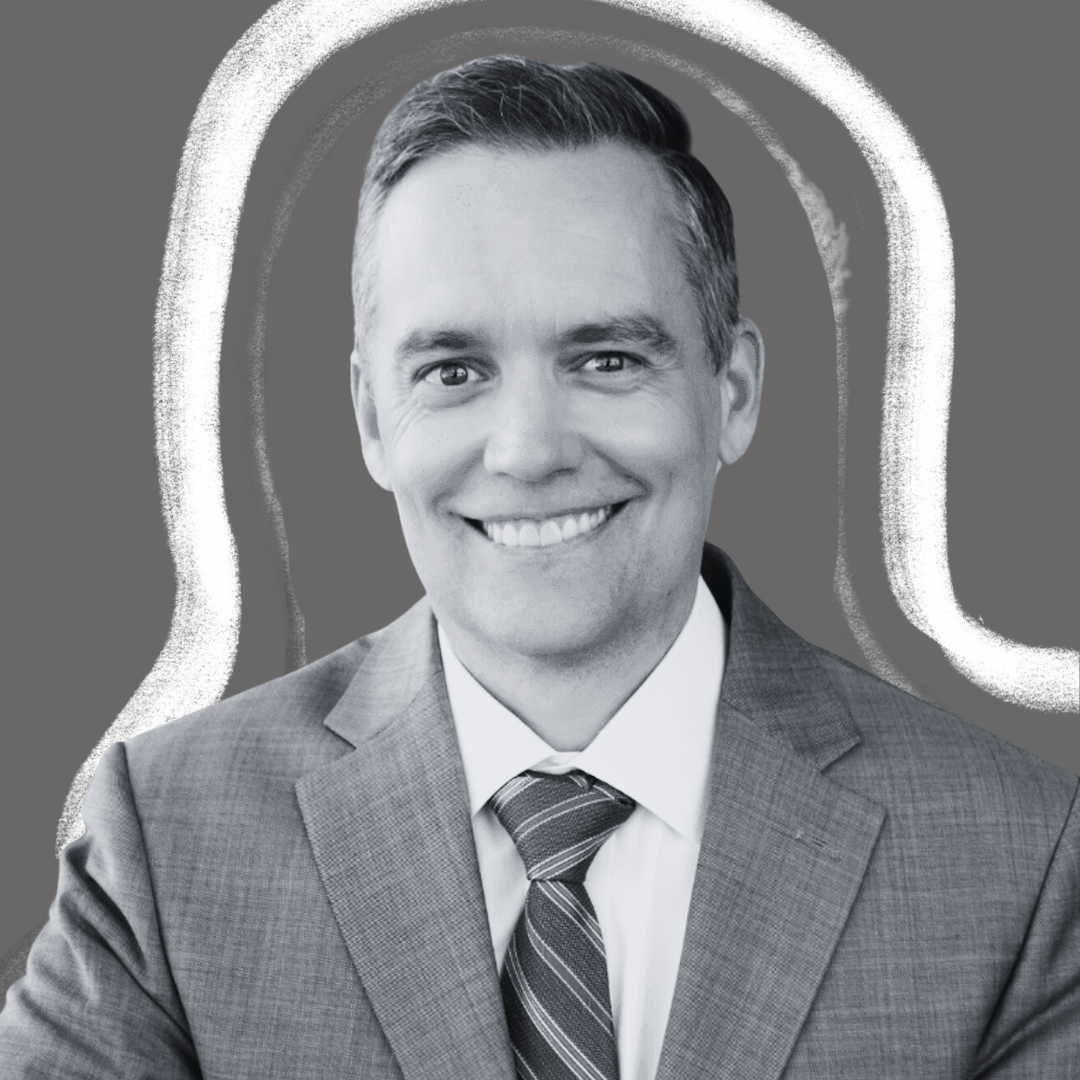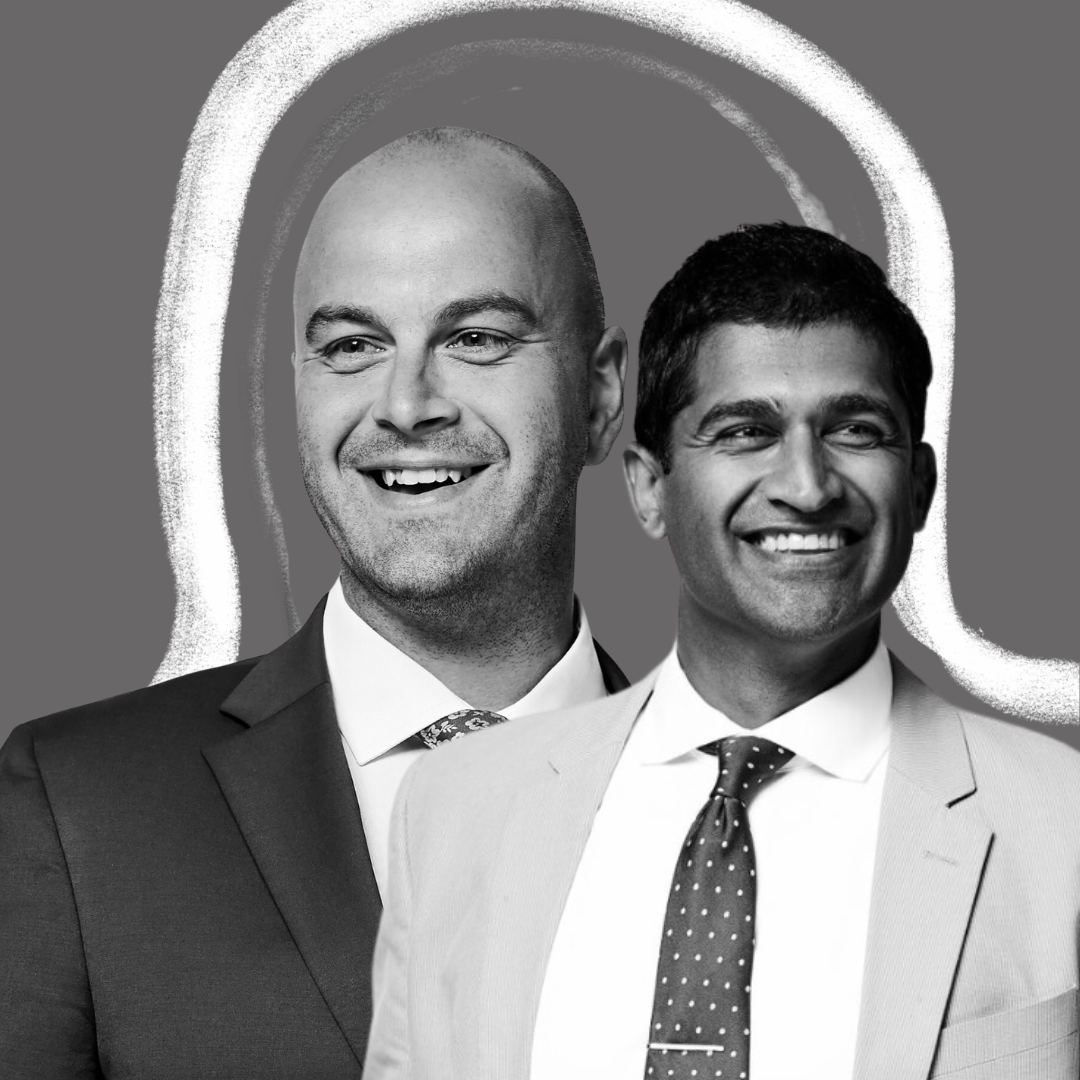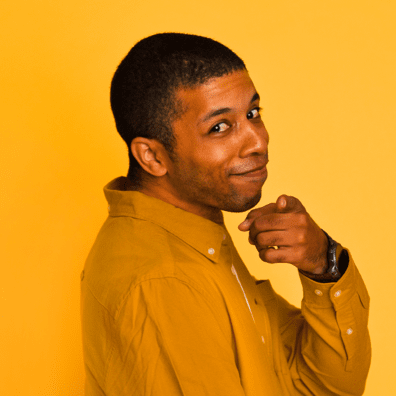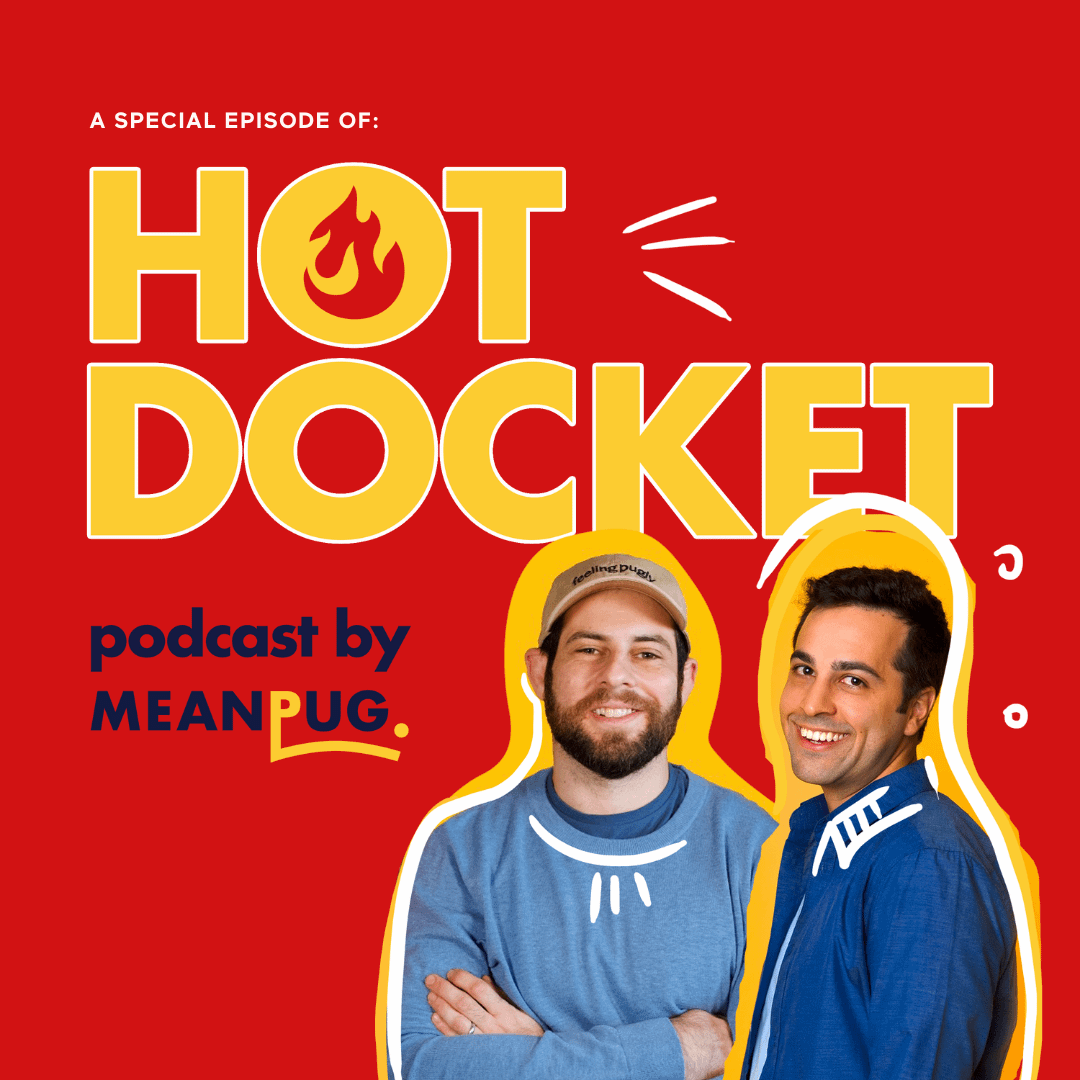
Episode Overview
What is the #1 marketing strategy every law firm needs to have? How do you ensure your marketing is in compliance with the law? Do you think you would survive a zombie apocalypse? Bobby and Andrew are joining forces to answer these questions and many more in this special episode of Hot Docket!
Tune in to this “Ask Me Anything” for a rollercoaster of questions on everything from building strong brand credibility to what type of lawyer Bobby and Andrew would be if they weren’t marketing gurus.
Trust this episode is one you won’t want to miss! Get to know your Hot Docket hosts on a deeper level while learning their top legal marketing tips, strategies, and metrics.
Episode Links
Want to hear more from elite lawyers and industry-leading marketers?
Follow us on Social Media for more
Episode Topics
- How did Bobby and Andrew become friends?
- How has legal marketing changed for law firms in recent years?
- Unique marketing challenges and opportunities for law firms in 2024.
- Top digital marketing tactics for law firms: SEO, paid search, local service ads, & more.
- The #1 marketing strategy law firms NEED to have.
- How to build strong brand credibility/reputation.
- What’s in Bobby’s pizza spreadsheet? + Their favorite NY pizza shops and toppings.
- The most important marketing metrics law firms should track.
- How to use your marketing metrics to drive impact.
- Bobby and Andrew reveal the TV villains they most resemble.
- Ethics and compliance issues in legal marketing.
- Strategies for online networking and relationship building.
- Innovating legal marketing: Emerging trends, tools, and tactics.
Key Actionable Takeaways for Law Firms:
- Be sure you’re choosing a marketing strategy that aligns with the type of law firm and clients you have, rather than just choosing a strategy you’ve seen work for another firm.
- Having an online presence plays a major role in attracting clients. Create a website, social platforms, and utilize marketing specialists that can help you implement digital marketing tactics.
- Differentiating your brand is the key to building a strong marketing strategy and online presence for your law firm.
- Strong brands have higher conversion rates, even when it comes to employee applications. Mean Pug gets 3-4x more quality applicants because their applications are heavily branded.
- If you can’t measure a marketing metric, it’s usually BS and you shouldn’t bother using it.
Episode Transcript
[00:00:00] Producer Rita Richa:
We interrupt your regularly scheduled podcast for this very special feature of Hot Docket with your hosts, Bobby and Andrew of Mean Pug. This episode is a compilation episode, Legal Bites of Wisdom. Enjoy these small, but mighty moments that will help you take your law firm marketing to the next level.
[00:00:23] Producer Rita Richa:
We hope you enjoy.
[00:00:25] Bobby Steinbach:
Hot Docket Podcast. We’re here.
[00:00:27] Bobby Steinbach:
Legal bites of wisdom, talking to lawyers, people in the industry, marketing coordinators, directors, anybody who has interesting things to say about legal. I wish I could say that I saw more cutting edge strategies make their way in, like more interesting use of AI or like just interesting widgets.
[00:00:49] Bobby Steinbach:
I haven’t really seen so much of that. I feel like what I have seen is just Like more consolidation of brands. So Morgan getting bigger, like, uh, other firms getting bigger and kind of eating up market share.
[00:01:03] Andrew Nasrinpay:
Yeah. I think the idea of economies of scale within legal has always kind of been there though.
[00:01:09] Andrew Nasrinpay:
Even pre digital being a large portion. of where firms are getting cases. Even within the digital landscape, there is a consolidation effect because the player at the top of Google is going to get roughly, let’s say a third of all case volume from search on those particular terms. The same has always been true of traditional media too.
[00:01:32] Andrew Nasrinpay:
Because of the buys happening, getting better unit economics as you have larger buys. It’s somewhat always been the case. So, legal though, I think is particularly interesting because it is so fragmented. And because such a large portion of the cases are still acquired through referrals. Just knowing attorneys.
[00:01:52] Andrew Nasrinpay:
That’s why I think it has lasted as long as it has as a fragmented industry.
[00:01:57] Bobby Steinbach:
Yeah, but I think like consolidation has gotten worse. Even if you just look at Google. There’s more and more real estate taken up by paid placement. LSAs are now like the big and, like what is a big, hot and big thing in marketing, in digital marketing.
[00:02:11] Bobby Steinbach:
That’s just another paid placement. The top is paid, the bottom is paid. It, it, it, they’re moving, uh, even the local SEO is now getting moved down on the SERP for more and more terms.
[00:02:21] Andrew Nasrinpay:
It, that dynamic though, causes more consolidation. Correct. Yep.
[00:02:27] Bobby Steinbach:
Which is what I was saying, I think it’s getting more and more consolidated over time.
[00:02:32] Andrew Nasrinpay:
Yeah, because in a lot of scenarios, the person who ranks number one in the paid listing is also ranking number one or number two within the organic listing. So if the click, on Google’s side, they always want more people clicking more ads, and they want the cost of that click to be correct. So. I think one way to think about this is there’s always been like a small group of firms regionally that dominate and I think that we’re going to see that play out more and more.
[00:03:03] Bobby Steinbach:
Yeah, yeah and like we are not even talking about like hedge fund money and weird outside money coming into the space which changes the dynamic. In, in, in a way that I don’t know we can predict.
[00:03:15] Andrew Nasrinpay:
A lot of firms end up choosing a strategy that doesn’t align with the type of firm that they are. So even talking strictly within personal injury as an example, you will see firms choose strategies that are more in line with being a volume firm when they are trial lawyers and they want a very selective type of case but they will try to win in a channel that will bring in a lot of volume of cases that they wouldn’t want to take anyway.
[00:03:42] Andrew Nasrinpay:
They may be better off choosing something that will increase the referral base but they’ll end up selecting a strategy that’ll bring in a mass type of cases that just won’t align. I
[00:03:53] Bobby Steinbach:
think the hard part about that problem is you can’t cherry pick the cases. Somebody who got in a catastrophic car accident doesn’t have a different targeting per se than somebody who got into a normal car accident.
[00:04:04] Andrew Nasrinpay:
Correct. So
[00:04:05] Bobby Steinbach:
you’re just pivoting the problem from a marketing problem to an operations problem. How do you screen people? the volume of cases that you need to find the needle in the haystack.
[00:04:13] Andrew Nasrinpay:
You would change where you allocate your marketing resources. So they, they would probably be better off building out their referral relationships instead of spending the money on, let’s say, PPC or SEO for car accident lawyer, a term that’s going to be difficult to win.
[00:04:31] Andrew Nasrinpay:
And they wouldn’t be able to service, let’s call it 90 percent of the claims anyway, if they just wanted. Commercial policies or something along those lines.
[00:04:39] Bobby Steinbach:
I think though, at the end of the day, a lot of it still comes down to just opportunity costs. Like if you’re a firm that’s small and you have very limited spend.
[00:04:46] Bobby Steinbach:
Yes, you need a cherry pick, the thing that’s going to drive the value quickest. However, if you’re a firm that is in some ways struggling to allocate spend, you have a marketing budget, you want to spend it. You know, you have short, medium, long term growth horizons. At that point, you still have the same problem of where to put the money to hit those time horizons.
[00:05:08] Bobby Steinbach:
And I think a lot of firms just don’t necessarily break down the problem into, into that level of granularity. They’re just like, I want cases.
[00:05:16] Andrew Nasrinpay:
Yep. And then another problem when you’re looking at a arbitrary number that is your budget for, let’s say, the year is you are left over with a certain amount that needs to be spent.
[00:05:30] Andrew Nasrinpay:
But certain strategies will have a certain level of allocation that they will need. So oftentimes those firms will underfund certain channels and they will look at that poor performance in that channel and not know what to do with it. the next year after looking at the performance of the previous year when what they really needed to do was increase that channel that was struggling instead of maybe in the following year cutting it all together.
[00:05:56] Andrew Nasrinpay:
Bobby and I met, I don’t know, maybe eight or nine years ago. We were working together at a startup at the time and it was one of those environments that was I’d say a very work hard, play hard environment. And I don’t know, we just connected there and we’ve worked together ever since.
[00:06:12] Bobby Steinbach:
Yeah. I have some pretty epic, um, ruckus at that place for anybody who’s big into secondary ticket marketplace and wants to collect dead companies ruckus.
[00:06:21] Bobby Steinbach:
We had, I remember. Like we had nerf guns, but we got the super high powered ones that I think are illegal in the US and they’re only like available in China with like the plastic tipped heads, the ones that take out an eye. So I remember we would have crazy, uh, full company nerf battles in the hallways.
[00:06:40] Bobby Steinbach:
It was in WeWork too. It was when WeWork was fun. We had like, um, crazy battles. And I remember, uh, Probably probably like one of my clearest memories of that was pistol whipping you in a corner I think I came into the other one and we had like barricades set up and I came over pistol whip It’s pretty bad.
[00:06:58] Bobby Steinbach:
Yeah. That was probably a lawsuit.
[00:07:00] Andrew Nasrinpay:
Yeah. I, I feel like pretty much everyone there got an eye shot out and it was usually the bystanders that were like the casualties, the eye shots.
[00:07:09] Bobby Steinbach:
I remember that CEO, very quick to fire, very quick to like let people go. And I had a new intern on my team. So I was the first engineer.
[00:07:18] Bobby Steinbach:
So I had a couple of people under me. I had a new intern on my team and I was just like getting her warmed up, getting her set up with her computer, all that other stuff. I go to the bathroom. Five minutes later, I come back. She’s gone. And I, I say, where’s, what’s, whatever her name is. And he goes, Oh, I fired her.
[00:07:34] Bobby Steinbach:
Like she wasn’t working out. Same day. So there was a, like a lot of stuff like that, that went on that I remember. Um,
[00:07:43] Andrew Nasrinpay:
I’m not sure these are stories that need or should be shared. Well, no, there’s probably an
[00:07:47] Bobby Steinbach:
employment lawyer listening. Employment lawyers. That’s got to be something bad about that, right? I guess it’s, I guess it’s at will, uh, employment.
[00:07:54] Bobby Steinbach:
Yeah. Okay. I don’t know.
[00:07:56] Andrew Nasrinpay:
I think that was an unpaid intern. Oh, she was, she was. It’s not even, it’s just very, uh,
[00:08:05] Bobby Steinbach:
okay. Um, are there any others? That was his
[00:08:08] Andrew Nasrinpay:
fun story. I just want to bring this back full loop.
[00:08:10] Bobby Steinbach:
Yeah. Yeah. That was a fun story. I mean, like, there were crazy stories. We had, um, this was the time when there was WeWork summer camp.
[00:08:19] Bobby Steinbach:
I don’t know if anybody was around during this. This was obviously before, like, the Newman implosion and things happened there. But um, at WeWork summer camp, it was like a adult summer camp where we would get shipped off to the woods of northern New York with like 400 people, 500 people, Adirondacks.
[00:08:39] Bobby Steinbach:
Which is Northern New York. Okay, so, Adirondacks. Um, with like 400 people. And, it would just be, you’d get there, it’d be like canoes full of beer, like liquor stands, things like that. Everywhere they’re like throwing beer at you when you first get off. And they would ship in like great. We had the first year, I think we had, um, chain smokers came in and perform.
[00:09:00] Bobby Steinbach:
They flew them in on a helicopter. The weekend came in the second year and they flew them on a helicopter into like the main area. So it was a crazy time. And like, there were obviously ridiculous things that happened there. But I don’t know that I can talk about it on this podcast.
[00:09:14] Andrew Nasrinpay:
Probably, uh, goes into that category of best not to as well.
[00:09:18] Andrew Nasrinpay:
So what are we talking about? What are we talking about here?
[00:09:20] Producer Rita Richa:
Sorry to bother you should better mind your own
[00:09:23] Bobby Steinbach:
business and get back to work. On
[00:09:25] Andrew Nasrinpay:
the digital side, things typically break out. into a few different buckets. You’ve got search, where there’s going to be SEO and paid search, and then paid search will fork again into the native varieties like local service ads, as well as the more traditional paid search ads.
[00:09:43] Andrew Nasrinpay:
And those break down into different intent types. So some folks are going after More transactional intent terms, like whatever type of law firm you are, employment lawyer, personal injury lawyer, while other terms will be more informational. So it’ll be something like, what do I do after a car accident? Or what do I do if insurance is not paying a claim?
[00:10:05] Andrew Nasrinpay:
And those sort of strategies are very different and the landing pages for them are very different and you need a marketing team that can focus on both. So you’re not going to want just a specialist for SEO, just a specialist for PPC, or just a company that can make a website. You need all those things to work together.
[00:10:24] Andrew Nasrinpay:
Um, So on the search side, that, that’s like a basic overview and then you have other walled gardens like social, which has both organic and paid components to it as well.
[00:10:37] Andrew Nasrinpay:
I think every firm needs to start with their brand. So your, your brand is more than just a website, but I think a lot of times a website is the starting place because that’s where, where most potential clients will see you.
[00:10:52] Andrew Nasrinpay:
That’s where a lot of referral partners will go to, to look up your phone number. And having a very professional differentiated brand online is super important.
[00:11:02] Bobby Steinbach:
Yeah, I mean, how many people we’ve talked to who say you guys were like a breath of fresh air. It was so great seeing like a company in the legal marketing space that doesn’t fit the mold of everybody else.
[00:11:15] Bobby Steinbach:
That’s not unique to our business. That’s every business. You want to differentiate your brand. It doesn’t have to be that you’re the most professional or the hardest fighter or the Like most passionate, but you should be the most something right? So like figuring out what that most is and then making sure that your brand and your site.
[00:11:35] Bobby Steinbach:
Uh, highlight that like, uh, that will be how you end up building your marketing collateral, how you end up building your, your content presence, how you end up building your social media. It all starts from that singular point.
[00:11:47] Andrew Nasrinpay:
Yep. And I think there are some attributes that every firm is going to want to say they want to be known as.
[00:11:54] Andrew Nasrinpay:
So like trusted and honest being some of those, those are things that every firm needs. And
[00:12:00] Bobby Steinbach:
untrustworthy lawyers.
[00:12:03] Andrew Nasrinpay:
Yep, so I don’t think you can completely make your differentiation on those things that are kind of table stakes.
[00:12:10] Bobby Steinbach:
I’m almost interested to know what would happen if you tried. What if you made your, what if your brand, what if, I’m not saying to do this, but what if a law firm went out and said, we are.
[00:12:19] Bobby Steinbach:
The scrappy lawyers, we’re going to do whatever it takes to win and like whatever it takes. Obviously, I don’t even know if you can do this like at all because it’s probably unethical and you’re going to get barred depending on like where you’re practicing. But I am curious.
[00:12:35] Andrew Nasrinpay:
I think there are some examples like that that have edgy advertisements and their whole brand is.
[00:12:42] Andrew Nasrinpay:
Whatever the law firm is, wins. And you do see these in some markets. So the one that comes to the top of my mind when you talk about like an edgy ad, it would be the Mike Morse ads. Where he like, looking at one of them where, I think I’ve shown you this TV commercial where a guy drops his wallet. And the attorney ambulance
[00:13:00] Bobby Steinbach:
chaser
[00:13:00] Andrew Nasrinpay:
picks it up and it looks like he’s chasing an ambulance.
[00:13:02] Andrew Nasrinpay:
Yeah. He’s leaning into some of the stereotypes and leaning into the, I’ll do whatever it takes to win sort of thing. And uh, he’s been very successful in his geographic regions doing that. Yeah.
[00:13:14] Producer Rita Richa:
We now randomly interrupt your LegalBytes session with a segment on whether or not Bobby and Andrew think they could survive a zombie apocalypse.
[00:13:24] Producer Rita Richa:
The
[00:13:25] Andrew Nasrinpay:
zombies are coming. So I think there are two groups. Well, there’s probably more than two groups, but the two main groups of people that would survive a zombie apocalypse. We’re going to be preppers that have stored food and guns and gold and all that. I think Bobby falls into that category. He’s a very like thought out person.
[00:13:46] Andrew Nasrinpay:
Then there are going to be the people that hunt the preppers because they know that they’ve got all the resources needed to survive. So would Bobby survive? Probably as a prepper. Would you survive too? Would I survive? Well, I know that you have all of these things prepped, so I’d have to hunt you down.
[00:14:01] Andrew Nasrinpay:
You forgot the third category. The parasite. The parasite.
[00:14:03] Bobby Steinbach:
The parasite who feeds on the prepper.
[00:14:05] Andrew Nasrinpay:
Well, I, I would say there’s the fourth category too. The completely under, unprepared. Yeah. That are just not going to make it.
[00:14:12] Bobby Steinbach:
You, this was who you said will make it. So the fourth category of who won’t make it.
[00:14:17] Bobby Steinbach:
The food for everyone else. Right, okay. So the food. So there’s, there’s preppers, there’s hunters, there’s parasites, and there’s food.
[00:14:24] Andrew Nasrinpay:
Um. Food, fodder, you can replace.
[00:14:27] Bobby Steinbach:
I think the problem with it is like zombie apocalypse falls under Is it 28 weeks later, 28 days later, style zombie, or is it like walking dead zombie?
[00:14:36] Bobby Steinbach:
Are they shambling, or are they sprinting? Right, like, if it’s a sprinting zombie, I don’t think I’d make it. Cause, like, I mean, my legs aren’t what they used to be. But I think if it were a Shambling zombie very good chance. I just have to hole up. I’ve got my gold for everyone listening. I don’t have gold no gold I have food hoarded Bad cardio, I’ve got food bad cardio and probably there might be a gun perfect target.
[00:15:05] Bobby Steinbach:
Yeah So yeah, I think I could probably live on a shambling scenario for let’s call it a year or two I think I’d probably get Like lackadaisical at some point might be out hunting a shambler comes up behind me Kills me that could happen, but I think Andrew, I actually think Andrew would live longer just kind of jumping parasite to parasite like a tick He’d kind of move between hosts and find his way.
[00:15:35] Andrew Nasrinpay:
Yeah, I don’t disagree Please go back to your work. I Think there are some definite attributes that can be measured You With strong brands, one will be that they have a higher conversion rate. So a brand with a good brand. is going to convert higher, so when they run media, whether that be TV or digital ads, they will see a higher conversion rate, so they will get more cases for the same amount of money.
[00:16:02] Andrew Nasrinpay:
They also have higher recall, so people are going to remember their creatives. And that, again, gives you better performance numbers. So you get this sort of Lollapalooza effect where you have good building on good, and I think that is the most important thing. Aspect of firms that do well
[00:16:22] Bobby Steinbach:
and just to highlight that with a real world example.
[00:16:25] Bobby Steinbach:
We built probably like a unnecessarily outrageous LinkedIn job description that we use for all of our job descriptions we post on LinkedIn. When you’re going through the posting process on LinkedIn, it tells you here’s how much you will likely get, like here’s how many applicants you’ll likely get for your budget.
[00:16:46] Bobby Steinbach:
Our numbers we get on applications are probably triple to quadruple what they estimate. And the reason why is because our job description is so branded and like so over the top and so kind of like Out the outside of the norm and that leads to even though it’s not conversion rate on like a revenue generating Uh metric it does lead to the conversion rate bump On our application quality and quantity.
[00:17:14] Andrew Nasrinpay:
Yeah, you’re going to get it. There are so many examples like that, where you’re going to win out in getting better employees. You’re going to get better retention and you’re going to get it for better rates because you have more to choose from. So I think that it’s true of a lot of things that your brand is really the most important.
[00:17:35] Producer Rita Richa:
Hey, y’all the pizza here. Branding is cool and all, but what about your favorite pizza though?
[00:17:41] Bobby Steinbach:
I think my favorite three places in New York, I haven’t gone to Lucali and I haven’t gone to Lindustri, which I feel like everybody kind of puts in their favorites, so I feel like it’s a little skewed. But top, top three favorite is probably Brooklyn Pizza Masters.
[00:17:57] Bobby Steinbach:
I actually like the one in Midtown, which is kind of nonsensical. I like that. I like Williamsburg Pizza on Upper East Side, which is also nonsensical. And then I like, probably Table 87 is, is number three.
[00:18:10] Andrew Nasrinpay:
I’d go with Table just because that is our, our convenience slice around us that’s high quality.
[00:18:15] Andrew Nasrinpay:
Solid slice. And, um, I also, uh, really, I think it’s Upside I really like for some of their variety style slices, like their vodka slices. Yep. are really the only vodka slices I’ve had that I’ve liked. So, I would give them a mention. In terms of topping style, I think that pepperonis really hit or miss. You need the cup and jar.
[00:18:39] Andrew Nasrinpay:
They need the jar, yeah. Little, uh, curled pepperonis if you’re gonna go pepperoni. A lot of times, though, Those style slices can get too oily just because of the fats and meats. I think the topping that has the most, like, uh, variability would be something like a sausage, where it could be absolutely disgusting or amazing.
[00:18:59] Andrew Nasrinpay:
And it’s really, really hard to find a good, like, sausage and pepper slice. But when you do, amazing.
[00:19:06] Bobby Steinbach:
Toppings just like screw up all the the it ruins the structure of a pizza I that’s for that reason. I only I used to be a big pepperoni guy. I still think pepperoni can hold its own I just feel terrible when I eat it So I’d say it’s either gonna be mushroom, which I feel like doesn’t really disrupt the pizza integrity or onions Which also they’re just like light enough that they sprinkle on
[00:19:28] Andrew Nasrinpay:
onions are so underrated on a pizza.
[00:19:30] Andrew Nasrinpay:
Yeah, very very good Yeah The only wrong answer is probably pineapple. You don’t put f ing pineapple on pizza.
[00:19:38] Andrew Nasrinpay:
Yeah, so I, I’m of the camp that if you can’t measure it, it’s kind of bullsh And the ultimate KPI is always going to be ROI. Of money in, money out. Every other metric. That’s not that, is kind of a proxy hoping to achieve that, right?
[00:19:56] Andrew Nasrinpay:
So I think if you look at ROI, one level above that would be something like a cost per case, which isn’t as good as ROI because some cases just hold much higher value. So you have ROI, cost per case. Then you have a lot of like proxy metrics that will get to those, which would be like a cost per lead, cost per intake, CPM.
[00:20:18] Andrew Nasrinpay:
If you’re buying on an impression basis, if you can’t measure it, it’s kind of bullshit. And each channel will have its own KPIs and measurements that are important. So for SEO, it might be something like, uh, rank tracking and looking where you rank. for each particular term or the number of terms you have, uh, ranking with the traffic you get from it or the conversion rate from those, that traffic, all of those things are things you should look at.
[00:20:43] Andrew Nasrinpay:
Uh, but the time windows for some of them are, are totally different.
[00:20:47] Bobby Steinbach:
I agree, but I think it to play devil’s advocate, I also think you shouldn’t be dogmatic. Like you should do things that might not be measurable if they’re good ideas and you want to try them. For instance, let me give an example. We ran an ad in trial lawyer magazine.
[00:21:06] Bobby Steinbach:
We didn’t see results for a year. Then we got three calls or two or three calls in maybe a month’s time span. I don’t know if we had measured that and just gone based on measurement alone a month and a half ago or whatever, it would have looked like an abysmal failure. But if you think about how. That medium actually works.
[00:21:27] Bobby Steinbach:
Those things stay around forever in people’s offices, in lawyers offices. They get picked up by other lawyers. They get looked at by clients who then talk to the lawyer. They like, so if you put something memorable in there, even though it’s not immediately trackable. What the brand lift is, or like the direct response conversion rate, it might still be a good idea.
[00:21:44] Bobby Steinbach:
So I think you can’t really be dogmatic in how you look at things.
[00:21:47] Andrew Nasrinpay:
Yeah, that comes back down to the timeline in which you’re looking at it. And unfortunately, I feel like with most of these metrics, the timeline is, When the decision maker is looking at it at that particular day, right? Yeah. So I, I think, yeah, a lot of those things you need to look at it at longer time, time horizons, but it never happens that way because you’re not scheduling it ahead of time to say, this is the day we’re going to make a decision on.
[00:22:13] Andrew Nasrinpay:
Two years worth of data prior to that or what, whatever it may be.
[00:22:16] Bobby Steinbach:
But, and you also hear all over, like all, all the time, should I get billboards? Should I get TV commercials? Should I put a tracking number in there? Should I get a vanity number? Like, should you not get a vanity number because you can’t track it.
[00:22:28] Bobby Steinbach:
Like, probably not a, a good vanity number is worth its weight in gold.
[00:22:31] Andrew Nasrinpay:
Yep.
[00:22:31] Bobby Steinbach:
So there is like a give and a take I think to, to this question.
[00:22:36] Andrew Nasrinpay:
Yeah. But it can be tracked in terms of the lift of using a vanity number versus a non vanity number. Right. You could do that. But it’s not worth it because you know it’s going, you know it’s going to be better, right?
[00:22:47] Andrew Nasrinpay:
Yeah, so part of it is using common sense Where you don’t need to over measure I would say bobby would be like one of the nerdy engineering villains, which isn’t like something that’s very common But I feel like there was that the golden eye episode of james bond how there was boris Where he always was like a genius and he ended up exploding himself with that little clicky pen That’s who I’d have to choose for Bobby if I had to think of a villain.
[00:23:14] Andrew Nasrinpay:
Scrooge is a good one, too. Pile of money. How could I not remember Scrooge? Pile of gold.
[00:23:18] Bobby Steinbach:
Yeah, okay. Classic
[00:23:21] Andrew Nasrinpay:
Prepper.
[00:23:22] Bobby Steinbach:
Yeah, okay. Who’s that guy in Game of Thrones who flays people? Like, loves to, like, puts them on sticks and flays their backs. Ramsey? Ramsey. I don’t remember. I think you’d be Ramsey. What was his house?
[00:23:37] Bobby Steinbach:
Um. God, I can’t remember this. I keep on thinking Iron Worm or like Worm Eye or something, but I think that’s the other guy. I think that’s the one who he slices off his, um, pee pee. Huh? Is the, uh, the gray, gray worm, gray worm. Gray worm he slices, I think.
[00:23:53] Andrew Nasrinpay:
Who was the iron? He was an ironborn. Gray worm
[00:23:56] Bobby Steinbach:
was an ironborn.
[00:23:57] Andrew Nasrinpay:
But I can’t remember who the other guy was.
[00:23:58] Bobby Steinbach:
I think it was Ramsey.
[00:23:59] Andrew Nasrinpay:
You picked the most violent, like, uh, that’s crazy.
[00:24:03] Bobby Steinbach:
Yeah, I think, um, well, you didn’t really give me a name. You didn’t give me a name for the engineer, you said engineering guy who blows his hand. Boris,
[00:24:10] Andrew Nasrinpay:
Boris from Goldeneye.
[00:24:12] Bobby Steinbach:
I don’t, I don’t, I don’t know Boris from Goldeneye.
[00:24:14] Andrew Nasrinpay:
But we’ll have to pull up a clip and show it.
[00:24:17] Bobby Steinbach:
Nobody screws with Boris Grishenko. Do you feel like you relate to Ramsay, the flayer? The
[00:24:24] Andrew Nasrinpay:
flayer, no, he’s a little bit too far.
[00:24:28] Bobby Steinbach:
Okay.
[00:24:28] Andrew Nasrinpay:
The amount of like, torture for pleasure there is probably the most I can think of, of anyone. So
[00:24:34] Bobby Steinbach:
you like, torturing for pleasure, but slightly less?
[00:24:38] Andrew Nasrinpay:
What?
[00:24:39] Bobby Steinbach:
Um, chow. Anyway, so.
[00:24:42] Andrew Nasrinpay:
Yeah, I think this is different state by state. So some things that’ll fly in California might not in Georgia or North Carolina or South Carolina. Every state has different ethics and bar compliance that you need to follow. So for some channels, it’s very like cut and dry what you can and can’t do.
[00:25:02] Andrew Nasrinpay:
So. And then it changes firm by firm. Some firms, even beyond the ethics of it, have a different type of brand and reputation that they want to uphold. And I feel like the firms that are most conservative in that regard are going to be like trial lawyers who have like a lifetime or multiple generations of reputation that they have to uphold.
[00:25:25] Bobby Steinbach:
But also to directly respond to how we maintain This, and how we do it. It all comes down to like having a team that can do the, because no one’s going to know all the ethics state by state. You need to have a team that you can trust and who has experience marketing for legal. So they have like an understanding of the pitfalls, can do their own research and ensure that everything is compliant.
[00:25:47] Andrew Nasrinpay:
Yep. And also the, just passing everything through the firm that you’re working with too. Because even beyond the compliance, it’s uh, making sure the firm you’re working with is happy with what you’re going to run.
[00:25:59] Producer Rita Richa:
What kind of lawyer would you be?
[00:26:01] Andrew Nasrinpay:
He’s the type that tortures other people. Is that a corporate attorney?
[00:26:05] Andrew Nasrinpay:
Yeah. I think this is a like hard question because I feel like my skill set would just be like an attorney that would originate cases. So if it was geared that way, I would, I think I would care less about the type of law and more about where you fit in. In the ecosystem, so I would probably originate all types of cases, but if I actually had to practice and choose something that’s, like, interesting to me, I think it would be a different answer, where it might be something in, like, intellectual property or something, something that you get to It’d be like eel law.
[00:26:38] Bobby Steinbach:
It’d be like the law of eel hunting Yeah, it would be something outrageously esoterical. Um, yeah, I think mine would probably be IP. Yeah, IP. Because I get to see cutting edge tech. I would understand what they’re going for and like roughly how it could be original I think that’s where I would practice We’re both horrible networkers.
[00:27:03] Bobby Steinbach:
I don’t know. What have you found successful?
[00:27:07] Andrew Nasrinpay:
I would say that it’s a very important part of any business whether it’s especially if it’s a b2b business where the Like conversion path isn’t always so clear in the timelines for when someone needs an agency or someone who provides any level of like specialized service.
[00:27:24] Andrew Nasrinpay:
I think referrals are always going to be the most important, but those are things that take time and energy of partners to actually do. So it might be going to events or it might be, um, whining and dining. The people who You do a lot of whining and dining? No.
[00:27:44] Bobby Steinbach:
Yeah. I think, um, for us, we, I personally just can’t stand like very shallow kind of surface level conversation.
[00:27:52] Bobby Steinbach:
So I’m, I think it makes me, I mean, that probably is probably one component of what makes me a really poor networker. Um, so I think it’s probably true for you too. And the reason I think what that leads to is most of our networking is really in the form of client introductions. Coworker introductions when, when they kind of understand that we like to think about these problems deeply and wanna talk to other people about it deeply, so they intro us.
[00:28:21] Bobby Steinbach:
I think there’s room for improvement across many dimensions. There’s room for improvement on the marketing side. You still see a ton of brands. law firm brands that look all the same. They’re all trying to like walk the same line, do the same things. And that’s not how marketing and branding work. So marketing, branding, lots of room for improvement.
[00:28:42] Bobby Steinbach:
Second layer, I would say is like operational fit, basically handling intake, putting things into a CRM so that you can. You can follow up on them and track them and all that good stuff. I think legal is getting there. At least there’s like a, there’s plenty of CRMs to choose from. There’s plenty of knowledge I think being shared around why to do it.
[00:29:03] Bobby Steinbach:
I still think there’s like slow to adopt, which is just common to what we see in legal as a whole. So at least we’re moving in the right direction. I think on the other side of operations, like call center side, I’ve said it for a while. I think there’s a huge lack of like, Reliable call center solutions, um, if you wanted to outsource that problem as a law firm.
[00:29:23] Bobby Steinbach:
So I think there’s a huge, if someone could figure out that problem, which I mean, it’s easy to just say spin up a call center. It’s much harder when you understand the breadth of practice areas and how each one requires a different type of agent, different script, different all everything. So so it’s not an easy problem, but there is like there is a problem there.
[00:29:44] Bobby Steinbach:
And then I guess the third layer is like the back back office type of work. So how does tech relate to the actual litigation process? And we actually have a guest on today who we’re going to be talking to about that. Pretty deeply. I wouldn’t say that’s like my strength. I don’t think I have a ton of knowledge around how the legal process works kind of behind the scenes But I’m sure that there’s like plenty of room for improvement.
[00:30:09] Andrew Nasrinpay:
I’m gonna agree across the board like, uh, oh wow I have nothing to add there.
[00:30:13] Bobby Steinbach:
So you’d plenty to say about milk and burgers, but you can’t talk about Innovation and legal.
[00:30:18] Andrew Nasrinpay:
I think most of the area that is lacking isn’t necessarily due to technology It’s just the use of it, where the technology’s been around for a while.
[00:30:29] Andrew Nasrinpay:
Even like you were talking about like CRMs, there’s still a ton of firms that don’t even use CRM or an intake process. So a lot of it is going to be on the intake and the operation side.
[00:30:39] Bobby Steinbach:
You’re also constrained on marketing. Like it’s kind of unfair because you just can’t do things that are modern. Like you can’t run retargeting on GDN.
[00:30:47] Bobby Steinbach:
Right? It’s just a barred situation. They won’t let you do it. The audiences aren’t allowed or whatever RLSAs or whatever it is, right? So it’s hard to innovate when you’re being like kneecapped by the platform.
[00:30:58] Andrew Nasrinpay:
And then there are other platforms where you just can’t run at all. So like all of that will exist.
[00:31:04] Andrew Nasrinpay:
Typically, the largest constraint on the marketing side will probably be budget, right? Because every company is going to have a budget. And that will probably be the first thing hit. But on the ops side, you don’t need to change a dollar going in, right? You can make a lot of those changes to the process and you’ll probably see a better result.
[00:31:24] Andrew Nasrinpay:
Than increasing or decreasing budget on the front side
[00:31:31] Producer Rita Richa:
Before we wrap up your delicious hot docket plate of legal marketing bites Please enjoy these hilarious and whimsical Outtakes from Bobby and Andrew that didn’t make it to the episode.
[00:31:48] Bobby Steinbach:
I feel a little uncomfortable in general around a guy who’s Ramsey like and talks about human burgers, but
[00:31:54] Andrew Nasrinpay:
How did I become, what was his last name?
[00:31:59] Andrew Nasrinpay:
Now we gotta look that up.
[00:32:01] Bobby Steinbach:
Bolton. Bolton. Bolton, Ramsey Bolton, that’s right. Gotta look up his flag. It’s the man, it’s the man being flayed. It’s uh, Redman. Red man, not the rapper. It’s red man. Red man, a red man being flayed.
[00:32:17] Andrew Nasrinpay:
Okay.
[00:32:17] Bobby Steinbach:
For burger consumption, likely.
[00:32:20] Andrew Nasrinpay:
Do you think he drinks it with whole milk?
[00:32:24] Andrew Nasrinpay:
Probably, yeah. God, so
[00:32:25] Bobby Steinbach:
stupid. How, how, I don’t even understand how you could think that milk is only mammalian. There’s no way that that’s true. And just because the FDA says it doesn’t mean that we don’t use semantic terms differently.
[00:32:41] Andrew Nasrinpay:
Uh, no, it is. It is what? Uh, it is literally the definition of milk. I’m saying there’s, but you are drinking.
[00:32:50] Andrew Nasrinpay:
Almond milk or oat milk. It’s just dirty water. Eww. It’s dirty nuts. Well put, Hope. I think it’s, uh. I drink milk and you drink dirty nuts. We’ll leave it at that. Welcome to the Hot Docket Podcast.
[00:33:10] Bobby Steinbach:
We hope you’ve enjoyed this episode of Hot Dockets. We’re your hosts, Bobby and Andrew, founders of Mean Pug, the marketing agency for ambitious law firms.
[00:33:18] Andrew Nasrinpay:
Have questions about marketing or anything we covered today? Email us at bark at mean pug dot com. Be sure to subscribe to learn more.




